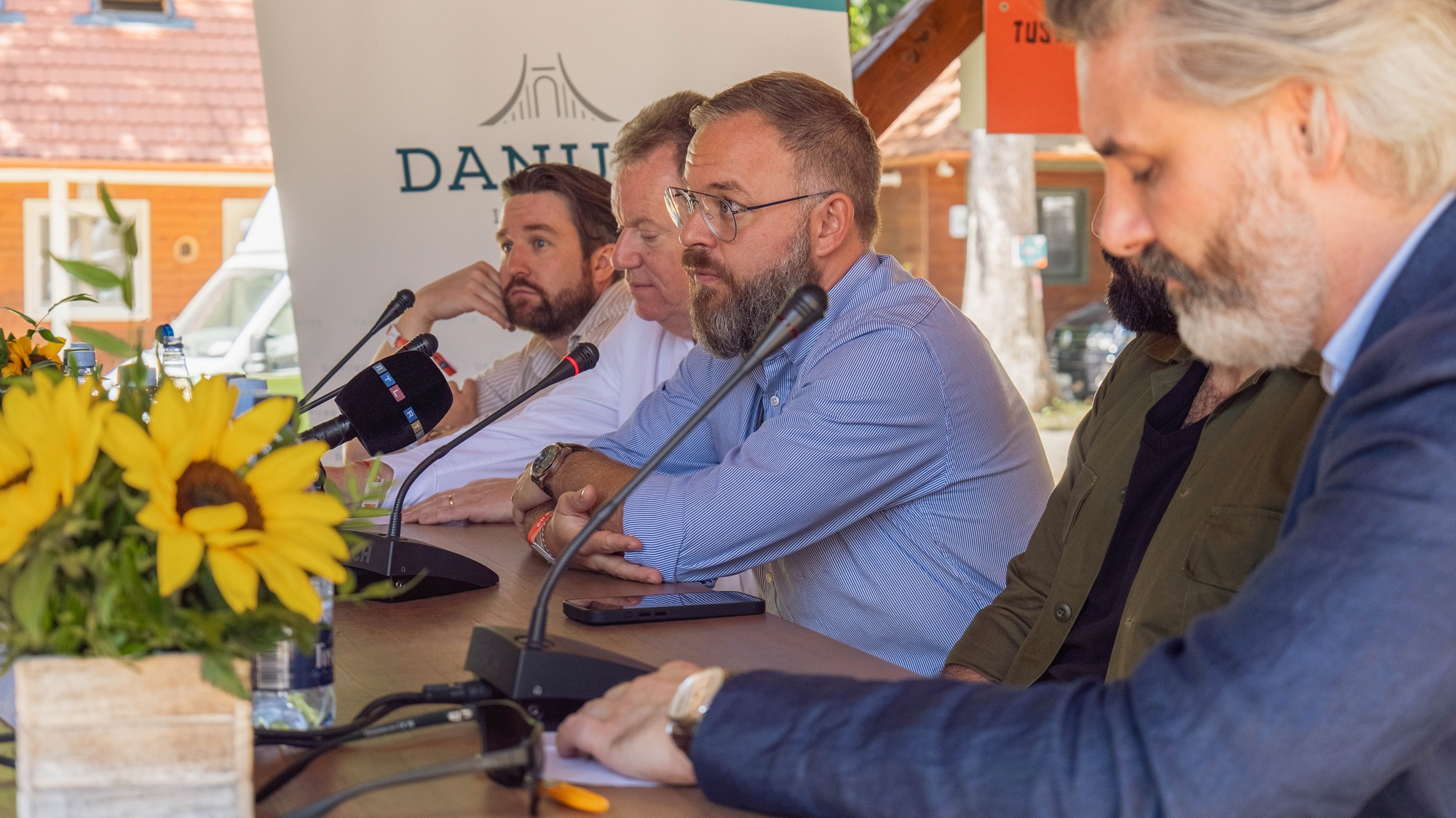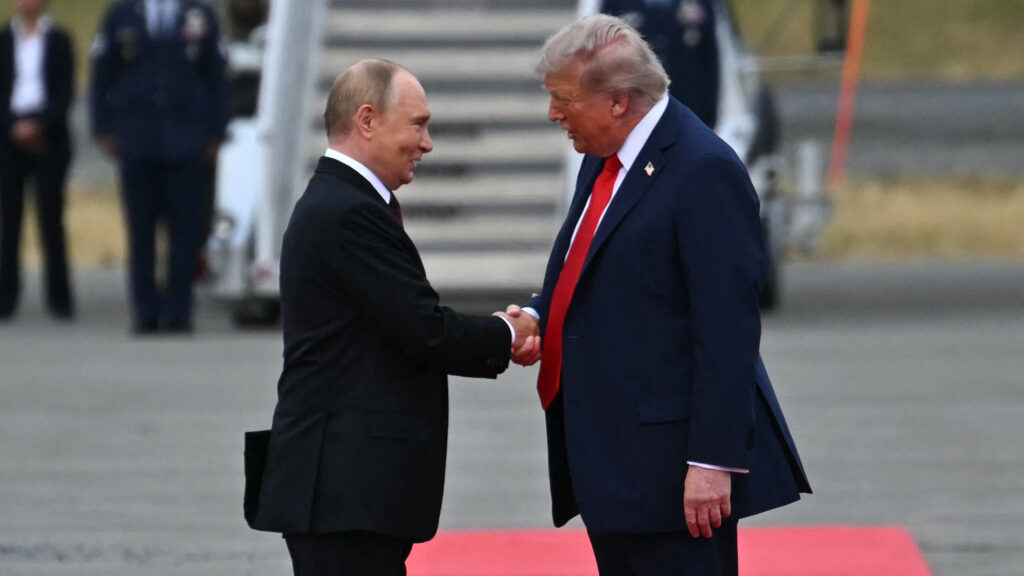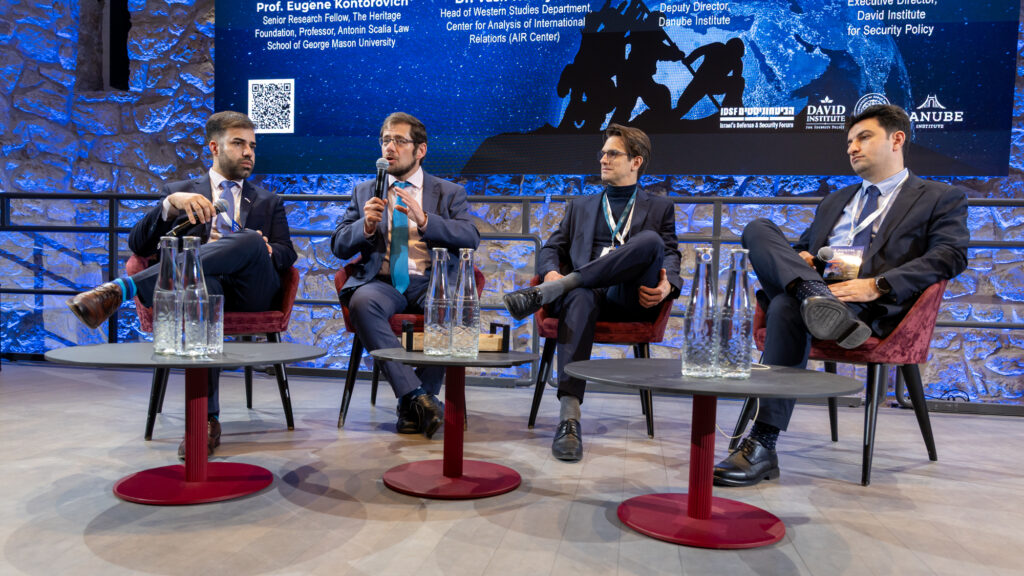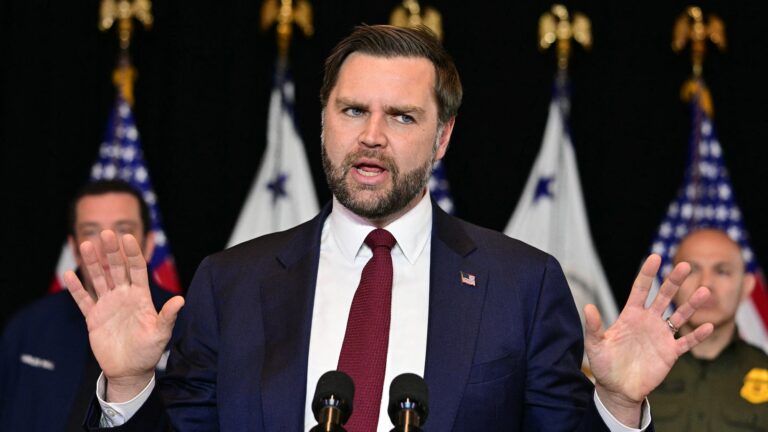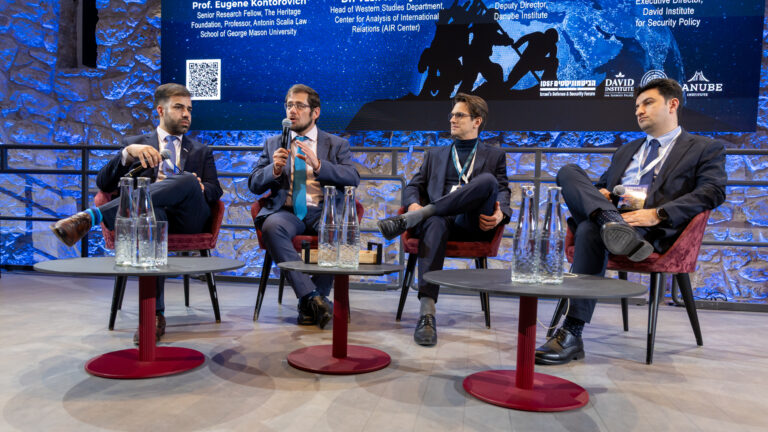The 34th annual Bálványos Summer University and Student Camp in Tusnádfürdő (Băile Tușnad), Transylvania, Romania featured a highly anticipated panel discussion on Wednesday, 23 July, between Balázs Orbán, Political Director for the Prime Minister of Hungary, Lord David Frost, the former chief Brexit negotiator for the United Kingdom, Philip Pilkington, visiting fellow at the Danube Institute and senior researcher at the Hungarian Institute Of International Affairs, and Marwan Abdallah, Vice Chairman of the Lebanese Kataeb Party. The discussion was moderated by Calum Nicholson, Director of Research for the Danube Institute.
Mr Nicholson started the conversation by citing Prime Minister Viktor Orbán of Hungary, who described the current Western world as ‘post-Christian and post-national’. To this, Director Orbán reminded all that it was at this very event, a little over a decade ago, at Tusványos 2014, where the Prime Minister made his speech about illiberal democracy for which he received so much scrutiny from the Western mainstream. However, the Director opined, over the years, PM Orbán has been proven right. He explained that at the time, the liberal world order was propagating that only under a liberal, progressive ideological framework can true democracy exist. However, that liberal world order has started to crumble since. In Hungary, we have now seen that a post-liberal, Christian democracy can also stand on its own.
Mr Pilkington, as the moderator pointed out, has written a book about the collapse of liberalism. He believes that came about with the start of the Russo–Ukrainian war in 2022; and it eventually collapsed because it ‘did not produce good outcomes’. Mr Orbán has shared similar sentiments: he said that the liberal world order promised peace and prosperity to global citizens, which it was unable to fulfil.
Balázs Orbán on X (formerly Twitter): “🌲🇭🇺 Once a year, #Hungary’s strategic compass points to Tusványos. Set in Transylvania, the Bálványos Summer University unites Hungarians across borders for shared dialogue on the future.🧭 Each year at Tusványos, @PM_ViktorOrban offers a strategic outlook on Europe and the… pic.twitter.com/2ET5fMKZ37 / X”
🌲🇭🇺 Once a year, #Hungary’s strategic compass points to Tusványos. Set in Transylvania, the Bálványos Summer University unites Hungarians across borders for shared dialogue on the future.🧭 Each year at Tusványos, @PM_ViktorOrban offers a strategic outlook on Europe and the… pic.twitter.com/2ET5fMKZ37
Mr Pilkington also stated that in the Cold War era, liberalism was somewhat contained by the challenges of a bipolar world order, but after the fall of the Soviet Union, these limitations disappeared. This was another factor in the neo-liberal world order’s demise, he shared.
Mr Abdallah lamented the fact that while his home country was once the ‘cradle of civilization’, it is now a nation that has to rely on foreign aid to survive. He believes that this happened because Lebanon did not hold on to its old, Christian values, and warned other nations that ‘If you don’t protect your values, you will lose.’ What’s more, the Western, liberal nations often give conditions of inclusivity and compliance with modern gender ideology along with their foreign aid. This was also common practice for the recently dismantled USAID and EU foreign aid initiatives. Alas, Mr Abdallah added, Lebanon ‘does not have the luxury’ to choose which country it accepts support from. They need to rely on US aid to maintain their military, and during COVID-19, they had to accept Chinese support to deal with the pandemic.
Lord Frost has told the packed house of attendees that he thinks that globalist world order ended in 2016, with the passing of the Brexit referendum in the UK and the first election of President Donald Trump in the US, two events that were thought to be nearly impossible by polling experts. He also believes that it was not a result of a sudden change in geopolitical affairs; rather, the old world order’s ‘unsustainable reality became more obvious’, even describing neo-liberalism as ‘an intellectual facade’. Lord Frost stated that it has always needed the hegemonic power of the United States pushing for it to be accepted as the status quo on the world stage, which is now gone.
Mr Pilkington and Mr Orbán agreed that international organizations, such as the UN, are still needed as forums to mitigate international conflict—however, they need reforms. Mr Orbán even declared: ‘We need international cooperation more than ever before.’
On the issue of USAID, the foreign aid agency of the US government that was recently dismantled by the Trump administration, Mr Orbán stated that it is an example of an entity that ceased to exist because it was not willing to accept the realities of the new world order. Under the guise of foreign aid, it pushed a neo-liberal, progressive agenda across the globe. The speaker also believes that so-called ‘migrant management organizations’ run by the EU and the UN will meet the same fate if they do not change course.
As a counter-example, he brought up the Hungary Helps programme by the Hungarian government, which gives foreign aid to specific causes, without any conditions attached, to persecuted Christians around the world. Mr Orbán also pointed out that the incumbent Trump administration is still willing to provide funds to countries in need, but now they do so in a way that helps their immediate national interest. Namely, they give payments to less developed countries who are willing to accept illegal migrants deported from the United States.
‘The incumbent Trump administration is still willing to provide funds to countries in need, but now they do so in a way that helps their immediate national interest’
Mr Pilkington took back the word, highlighting the irony that a decade after the United Kingdom voted to leave the European Union, the liberal global order that Brexit opposed has collapsed. However, there is still a debate, even among respected scholars, about what this new world order will exactly be like, Mr Orbán stated. There is consensus only on one thing: we are living through a transitional period right now, he added.
Related articles:

